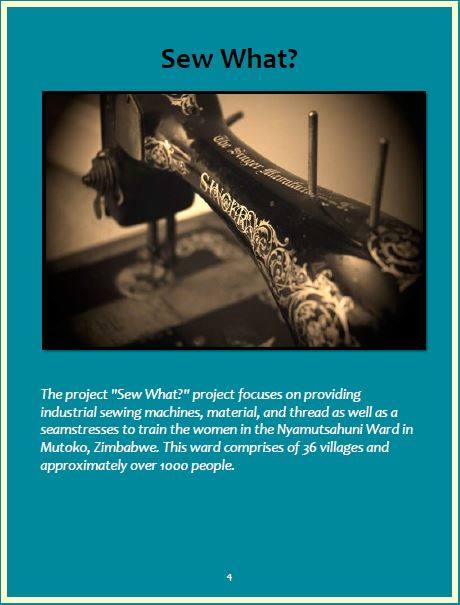
BuildingComeUnities was created to serve as a global empowering
movement for women who are living in poverty and therefore
lack opportunities to provide for themselves and their families.
BuildingComeUnities enables women to pursue their quest for self-reliance
by facilitating access to funds, business opportunities, and technologies to
help women transform their communities.
Working Women in Zimbabwe (WWZ) expands the possibilities for women
in the developing world to lead their lives self-sufficiently and empowered
to serve as agent of change. WWZ enables women to directly contribute to
the realization of the United Nations Millennium Developments Goals in
communities worldwide.
Trough international collaboration, trans-border practices and community
outreach, WWZ uses the power of global partnerships to empower women
and youth living in poverty by giving them access to technologies and
teaching them the skills necessary to help them prosper economically in the
future. Through initiatives such as “Sew What” and “Chicken Farming”,
women are given the opportunity to run their own businesses.
Unemployment affects one in three women in the developing world,
predominantly impacting the lives of women living in rural areas.
Generations of individuals have spent their entire lives living in poverty,
for this reason they have never seen themselves as having the potential of
transforming their communities.
“Poverty has a woman’s face.” Tahira Abdullah
Women have to deal with a multidimensional, all-inclusive poverty system;
not only the lack of income, but also the lack of education, health, and
opportunities to earn adequate income when they are given work. These
vulnerabilities prevent them from advancing their innate capabilities, as
they are forced to live at the boulevard of discrimination and violence.
Working Women in Zimbabwe aims to bring dignified work to women
in communities where more than 70 percent of the population has been
unemployed for more than a decade.
“Sew What” the first initiatives of WWZ, will provide resources and
training to women in order to develop thriving sustainable sewing projects
as means to create a revenue for these women.
The mission of WWZ is to empower women to create business ventures in
fields they believe offers them opportunities to generate income. All projects
initiated by WWZ are initiated by women in various communities to help
them create long-term innovative and sustainable projects to generate
revenue for themselves and their families.
During the first phase of the project, WWZ will provide numerous
industrial sewing machines to women in the Nyamutsahuni Ward
in Mutoko, Zimbabwe. “SEW What” will be implemented through a
collaboration with Nyadire Connection, a non-profit organization that
seeks to support and sustain communities in northeastern Zimbabwe. Since
2006, The Nadyare Connection has offered various social services to the
community, including a hospital, an orphanage, schools and many other
services to the local community.
During PHASE ONE of the project, our goal is to provide numerous
industrial sewing machines to a group of women. The initial goal is to raise
$ 5,000 US Dollars by January 1st to fund the “Sew What” initiative and
prepare the foundations for larger commitments in the near future.
We envision underprivileged women in community worldwide given
the opportunity to improve their lives by becoming self-sufficient and
in a position to support their families. We believe that the WWZ has
the potential of creating endless possibilities of positive change for
communities where these women. We can visualize this because for the first
time, we believe our generation has both the power and resources to lift the
lives of millions of people out of poverty. With your help, these initiatives
will soon become a reality!
Through these projects, WWZ works with community organizations and
individuals that focus on issues
enumerated in the United Nations Millennium Development Goals
including to:
Eradicate extreme poverty and hunger
Achieve universal primary education
Promote gender equality and empower women
Reduce child mortality
Improve maternal health
Combat HIV/AIDS and other diseases
Ensure environmental sustainability
Global partnership for development
In the year 2000, 193 world leaders met and set these far-sighted goals to
free a major portion of humanity from the shackles of the most pressing
global issues by the year 2015. Significant strides have been made toward
reaching these goals, but with the world population reaching 7 billion, and
the economic globalcrisis, accomplishing these goals remains a challenge.
Community members will be encouraged to educate themselves on these
goals and asked to participate in service that contributes to these goals in
both a localand global sense.